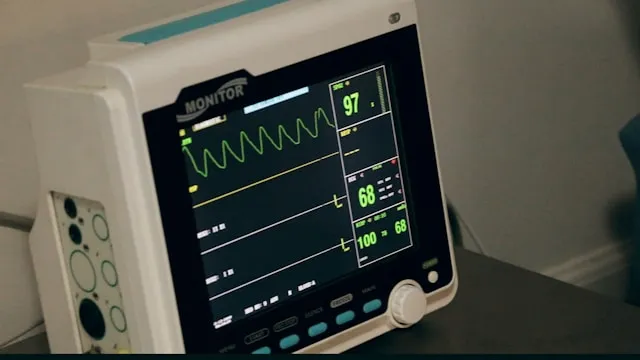Have you been diagnosed with heart disease, or are you experiencing some warning signs? If yes, then you might be wondering, How long can you live with blocked arteries? Blocked arteries or atherosclerosis do not always cause immediate symptoms, but with time, they can lead to severe and fatal complications. But with the right knowledge, lifestyle changes, and treatment, most people live fulfilling and long lives despite arterial blockages.
In this article, you will explore the life expectancy with blocked arteries, how to manage it, and what to do to improve your heart health.
How Long Can You Live with Blocked Arteries?
What is the life expectancy with blocked arteries? As most people remain unaware of the blocked arteries or atherosclerosis, it is tough to estimate the exact effect of this problem on the lifespan. But atherosclerosis is the major cause of heart-related disease, and its impact on life expectancy can be estimated by looking at the complications that can result from it. According to the National Institute of Health, these complications can impact life expectancy in the following manner:
Heart attack: Shortens your life by 16 years on average.
Heart failure: Reduces the lifespan by 10 years.
Stroke: Reduces life expectancy by about one-third.
These figures show how untreated blocked arteries can cause serious and life-changing health outcomes.
Factors That Impact Life Expectancy
The following factors can affect life expectancy:
Location & Number of Blocked Arteries
Multiple blockages in the major arteries, such as the left main coronary artery, are more life-threatening than those in single and smaller arteries.
Symptoms & Diagnosis Timing
Individuals who are diagnosed early with no symptoms often live longer.
Lifestyle Habits
Poor diet, lack of physical activity, and smoking can worsen the outcomes.
Treatment Approach
Stent placement, bypass surgery, angioplasty, and medications can significantly improve survival rates.
Other Medical Issues
High blood pressure, obesity, kidney disorders, and diabetes increase the risk and lower the lifespan.
How to Know If Your Arteries Are Blocked?
Blocked arteries frequently do not come with clear symptoms. Many people live with fully or partially blocked arteries for several years without even realizing it. So, keep a watch over the following symptoms of blocked arteries before they lead to severe complications:
Chest pain or angina
Weakness
Lightheadedness
Shortness of breath
Nausea
Cold sweats
Pain in the shoulders, neck, or arms
Facial droop
Slurred speech
Weakness in one part of the body
Cold painful extremities
In most cases, blockages do not cause visible symptoms until they are severe or cause a severe event, such as a stroke or heart attack. That's why routine health checkups are so vital, especially if you have risk factors, like diabetes, high cholesterol, smoking, high blood pressure, or a family history of heart disease.
Risk Factors For Blocked Arteries
Understanding the following risk factors for blocked arteries can help improve life expectancy:
Age: Getting older increases the risk.
Gender: Men have a higher risk, while the risk for women increases after menopause.
Family History: The heart disease running in the family can increase the risk.
Inflammatory Diseases: Conditions, such as psoriasis and rheumatoid arthritis, can contribute to risk.
Smoking: The major risk factor for coronary heart disease, according to a study.
Unhealthy Diet: A diet rich in sugar, trans fats, and saturated fats can lead to the buildup of plaque.
Physical Inactivity: An inactive or sedentary lifestyle can raise the risk.
Obesity: Being obese or overweight increases the risk.
High Blood Pressure: Weakens the heart's arteries and lowers the flow of blood over time.
High Cholesterol: Leads to the formation of plaque in the arteries.
Diabetes: High blood sugar levels can damage nerves and blood vessels over time.
Sleep Apnea: Linked to higher rates of heart issues.
What Are the Treatment Options for Blocked Arteries That Extend Life?
The following are the common treatment options that can help extend the lifespan with blocked arteries:
1. Medications
These are often prescribed to treat symptoms, prevent worsening of blockages, and lower the risk of complications. Common options may include:
Statins: To reduce cholesterol levels and slow down the buildup of plaque.
Blood Thinners: Examples include aspirin, to lower the risk of blood clots.
Beta-Blockers & ACE Inhibitors: To maintain blood pressure levels and prevent heart strain.
Nitroglycerin: To ease chest pain.
2. Minimally Invasive Procedures
For severe blockages, the following surgical procedures can help restore the flow of blood that may be necessary:
Angioplasty and Stent Placement: A catheter and a tiny mesh tube (stent) to used to keep the blocked arteries open.
Atherectomy: A special device is utilized to remove accumulated plaque from the walls of the artery.
3. Surgery
In severe cases, which are not managed by minimally invasive methods, the healthcare providers may recommend the following surgical options:
Coronary Artery Bypass Grafting: Involves using a healthy blood vessel from another body part to create a bypass around the blocked artery.
Endarterectomy: Involves the surgical removal of plaque from the artery, which is often used for blockages in the neck.
How to Prevent Heart Blockage?
To prevent the risk, adopt these lifestyle changes:
Eat a heart-healthy diet: Like fruits, lean protein, whole grains, vegetables, and healthy fats.
Limit unhealthy foods: Such as processed foods, trans fats, added sugars, and saturated fats, which contribute to the buildup of plaque.
Reduce sodium and sugar intake: This helps maintain blood pressure.
Practice regular exercise: Aim to practice moderate-intensity exercise, like cycling, swimming, and brisk walking, for around 150 minutes each week to boost blood circulation and improve heart health.
Quit smoking: This is because smoking damages blood vessels and interrupts blood flow.
Limit alcohol: Excessive intake of alcohol can contribute to increased blood pressure.
Manage Medical Conditions: Manage cholesterol, blood pressure, and diabetes, as they are the risk factors for blocked arteries.
Manage stress: Practice stress-reducing activities, such as yoga or meditation, as prolonged stress is linked to high blood pressure.
Get regular health check-ups: This helps you keep track of your overall health and also manage risk factors.
Final Thoughts
So, how long can you live with blocked arteries? Well, it depends on how early this issue is detected and managed. Many individuals live long and healthy lives with proper lifestyle changes and treatment, while others might face severe problems if the condition is left untreated. Remember that early detection and follow-ups are key.
Do not delay until a heart attack forces you to take some action. Give attention to your heart health today.
أسئلة متكررة
What are the symptoms of a blocked artery in your neck?
1. Blurred vision 2. Confusion. 3. Memory loss. 4. Numbness or weakness 5. Problems with thinking and reasoning,
When do arteries in the neck get clogged?
Arteries get clogged when the fat deposit, which results in plaques that deliver blood to the brain and head.
Can a blockage in the carotid artery cause a stroke?
Yes, by blocking blood flow to the brain, a blockage can lead to a stroke. This makes early detection and management necessary.
Can you survive with 100% blocked arteries?
It depends on whether the blockage is sudden or chronic and how quickly the treatment is received. Emergency medical care is very important.
-User-1754377709.png)
كُتب بواسطة







